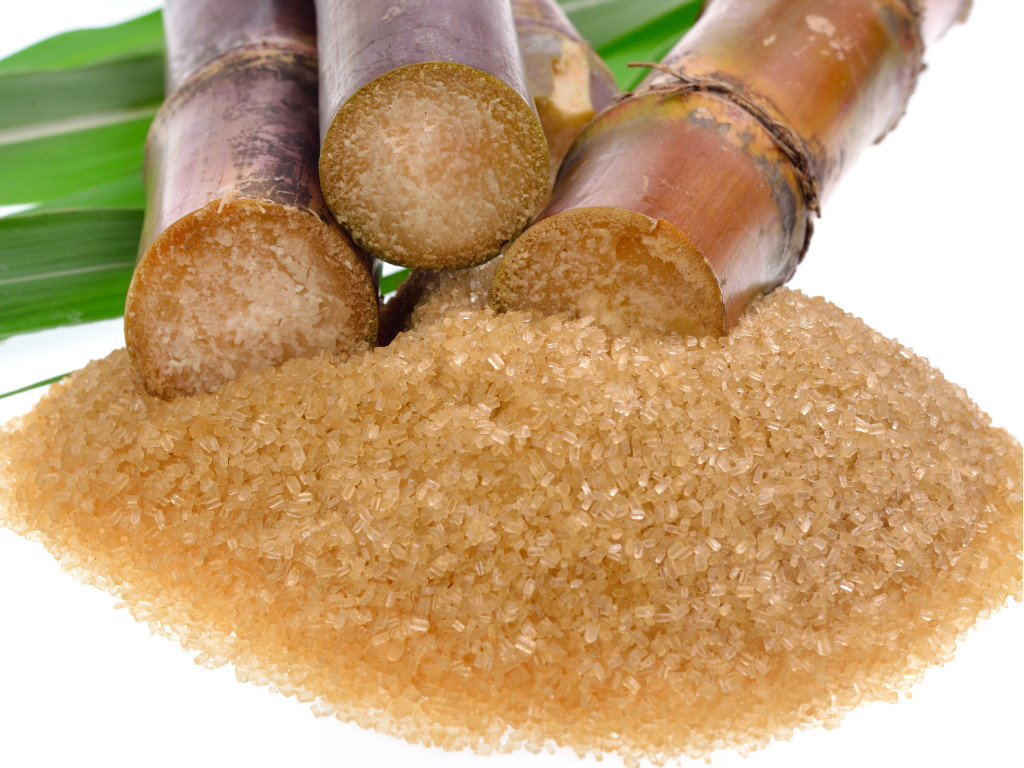- People have eaten sugar cane and used it as a sweetener for centuries. Colorado State University Extension notes that people are born with a liking for sweet foods and that an average person eats more than 100 lbs. of sugar in a year. Grown in tropical climates, including Hawaii and Louisiana, sugar cane is processed into a wide variety of sugars.
Types
- White, granulated sugar is the most common type of cane sugar, but different types of sugar are easily available. Turbinado, or raw sugar, is made from the evaporation of sugar cane juice. It is not refined like white sugar. It has bigger crystals and a richer taste. Brown sugar still has some molasses content, which is a byproduct of producing white sugar. Confectioners, or powdered sugar, is merely white sugar which has been ground into a powder and mixed with a little cornstarch to prevent sticking. All varieties of cane sugar have the same nutritional content.
Calories
- One teaspoon of granulated cane sugar contains 15 calories. All types of cane sugar, including raw sugar and brown sugar have the same amount of calories in each serving. There is no fat in sugar. MayoClinic.com, citing the American Heart Association, notes that women should only have 100 calories or less of added sugar per day, while men need to keep their added sugar intake to 150 calories or less per day. Added sugar does not include food sources of sugar, such as fruit.
Nutritional Content
- Sugar contains no nutrients other than simple carbohydrates. Each teaspoon of sugar contains 4 g carbohydrates. Your body uses sugar carbohydrates as energy. A serving of sugar provides 1 percent of the carbohydrates you need each day, but other food sources do a better job of providing the energy you need along with other nutrients. There is no sodium or protein in sugar.
Health
- Adding too much sugar to your diet can lead to serious health issues. Tooth decay, heart disease, obesity and lower good cholesterol levels are just some of the problems that an over-consumption of sugar can cause. Sugar provides empty calories that fill you up without providing any essential nutrients, which might lead you to eat fewer healthy foods. It’s essential to watch your sugar intake.
Tips
- The problem with cutting back on your sugar intake is that so many processed foods contain it. You can easily reduce the amount of sugar you add to sweeten your drinks or use to bake with, but read food labels carefully. Condiments, such as salad dressing and ketchup, often have sugar in them. Keep in mind that women should consume 6 tsp. or less of sugar a day, and men should keep their consumption to 9 tsp. or less per day.
References
Source: Christensen, Maria, “Nutritional Facts on Cane Sugar”, 16 Aug 2013, http://www.livestrong.com/article/346356-nutritional-facts-on-cane-sugar/

